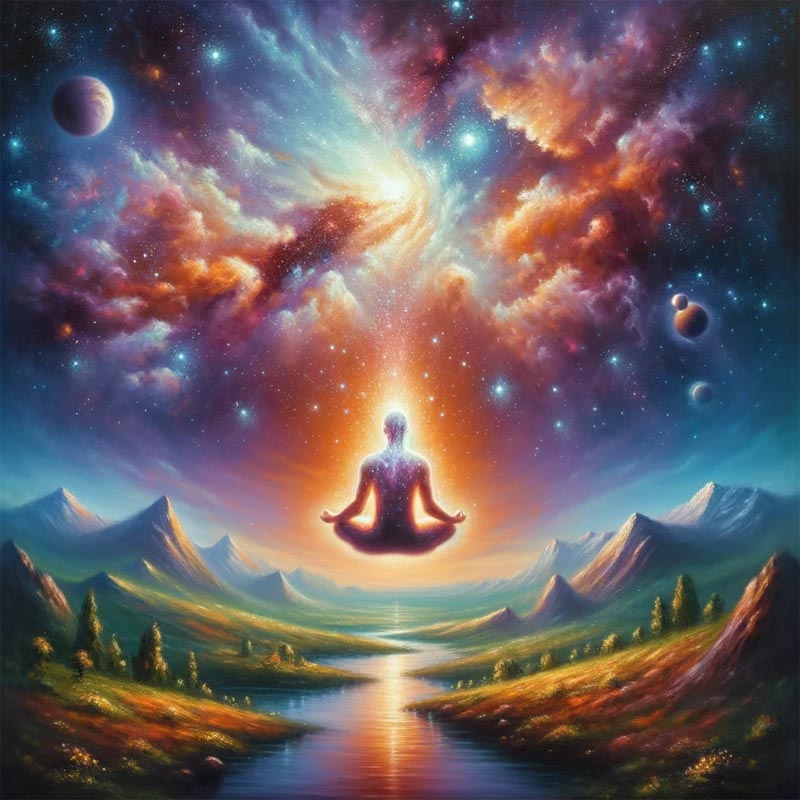This article dissects the philosophical concept of absurdism, as presented in the video “Absurdism: Life is Meaningless” by Aperture. The video delves into the existential crisis that many people face when confronted with the apparent meaninglessness of life, drawing from the myth of Sisyphus and the philosophies of Albert Camus and Jean-Paul Sartre.
Contents
- Introduction
- The Myth of Sisyphus as a Modern Parable
- Financial Constraints and the Quest for Meaning
- The Human Craving for Meaning
- Existentialism and the Responsibility of Freedom
- Camus’ Solution: Embracing the Absurd
- The Rejection of Nihilism and the Embrace of the Present
- The video

Introduction
Absurdism invites us to confront the existential void, not as a nihilistic abyss to be feared, but as a realm of limitless possibilities. In acknowledging the Absurd—the dissonance between our thirst for meaning and the universe’s indifferent silence—we liberate ourselves from the shackles of dogma and the tyranny of tomorrow. This acceptance becomes the gateway to an authentic existence, where the present moment is not just a point in time, but the canvas of our freedom.
The Myth of Sisyphus as a Modern Parable
It begins with the story of Sisyphus, a figure from Greek mythology who is condemned to eternally roll a boulder up a hill, only for it to roll back down each time he reaches the top. This myth serves as an allegory for the futility and monotony that characterize human life. Many people find themselves stuck in a loop of repetitive tasks, never pausing to question the purpose behind their actions, much like Sisyphus.
Financial Constraints and the Quest for Meaning
Financial instability often prevents people from contemplating the meaning of life. In a world where passive income streams like stock investments have become unreliable, people are too preoccupied with survival to ponder existential questions. This financial instability serves as a barrier to embracing the absurdity of life, as people are too consumed with immediate concerns to consider deeper philosophical issues.
The Human Craving for Meaning
Humans are hardwired to seek meaning and order in a chaotic world. This quest often leads to feelings of anxiety, alienation, and hopelessness. Albert Camus termed this conflict between the human desire for meaning and the universe’s indifference as “the Absurd.” The video suggests that traditional sources of meaning, such as religion, have been eroded by scientific discoveries and philosophical inquiries, leaving a void that neither science nor reason has been able to fill adequately.
Existentialism and the Responsibility of Freedom
Jean-Paul Sartre, often considered the father of modern existentialism, argued that individuals must create their own meaning in a universe devoid of it. Sartre posited that “existence precedes essence,” meaning that individuals are not born with a predetermined purpose but must forge their own. This radical idea shifted the responsibility for finding meaning from external entities like gods or kings to the individual, emphasizing the terrifying level of freedom that comes with this responsibility.

Camus’ Solution: Embracing the Absurd
Albert Camus disagreed with Sartre’s approach, arguing that the universe would always reject human attempts to impose meaning. According to Camus, there are three possible reactions to the Absurd: suicide, faith, or embracing the Absurd. The last option, embracing the Absurd, involves acknowledging life’s meaninglessness and choosing to live passionately and intensely regardless. Camus believed that the struggle against the Absurd is itself meaningful, even if it is ultimately futile.
The Rejection of Nihilism and the Embrace of the Present
The video concludes by advocating for absurdism as a philosophy that transcends nihilism. While nihilism posits that life is meaningless and therefore not worth living, absurdism encourages individuals to embrace life’s meaninglessness as an opportunity for freedom. By accepting the Absurd, people can live in the present moment, free from the constraints of external ideologies or future expectations. This acceptance allows for a more empathetic understanding of the human condition, as everyone is engaged in the same existential struggle.

